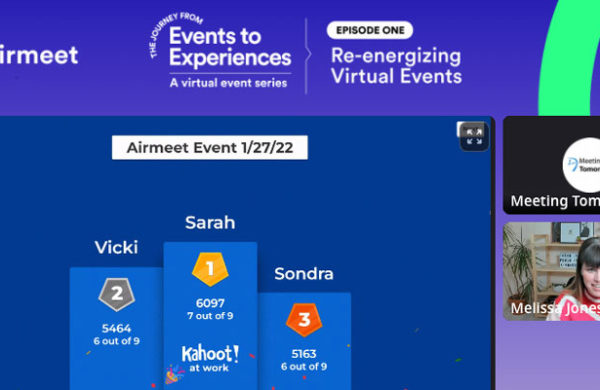
What makes some businesses better than others? Why do you spend money at one store, but not at another just like it? What keeps you coming back to your favorite brands? Often times, the simple answer is customer service.
In this age of endless consumer choices (e.g. the supermarket toothpaste aisle), a business must always find ways to differentiate itself. If it can’t stand out from the crowd, it will eventually get lost in it. And one of the best ways to stand out – no matter your budget – is through exceptional customer service.
People do business with people they like. It’s that simple. And when your company treats people well, they’ll typically stick around and be willing to invest in you – even if you make a couple mistakes along the way. Since you’re continually trying to help them and serve them, it won’t give them any reason to leave.
With that said, what are some practical ways to provide great customer service? Here are a few:
- Treat others how you want to be treated. This is number one. It’s the overarching principle of excellent customer service. Always be thinking, “Would I want a company to treat me like this?” Would I want them to spam me with email, argue with me on the phone, or fail to provide helpful instructions? OR… Would I want them to be friendly, help me solve a problem, point me in the right direction, or maybe even offer me a discount? Putting yourself in the customer’s shoes will reveal a great deal about the quality of your customer service.
- Empathize. Some people are naturally better at this, and for some it’s more difficult. But even if it’s hard for you, it can still be learned. In short, you need to actually care about – and in some sense, feel the pain of – your customers. You need to seek first to understand their feelings and problems. This will help you know best how to actually help them. Too many customer service reps quickly become defensive and dismiss the real pain of those they’re helping – which can ruin the relationship (sometimes forever). Please don’t minimize the feelings of your customers. Seek to understand them and empathize with them, so that you’re actually “on their side” while working toward a solution.
- Be honest and admit when you’re wrong. If you blew it, just say so. If you need to apologize, just do it. Companies are run by people and people make mistakes. So expect your company to eventually make some mistakes. The most important thing is not to cover it up, point fingers, or pull away. It’s to own up to the mistake, say you’re sorry, and try as hard as possible to make things right. And once you’ve done those things – get back up, brush the dirt off your shoulder, and keep moving ahead. You are not defined by your mistakes. But if you’re willing to admit wrongdoing, you can continually learn from your mistakes and always get better as an organization.
- Be quick to respond. Speed of response is key, especially when there’s an important issue or problem hanging in the balance. You don’t need to be enslaved to your customers and respond to every email within 10 minutes, but the quicker you can get back to them (within reason), the better. Customers appreciate knowing you’re prioritizing them and their situation. It also helps to put them at ease because they’re not left wondering when you’re actually going to address their concerns. If nothing else – or if you don’t have all the information you need just yet – you can always fire back a quick email saying, ‘I’m looking into this right now and will get back to you with a more detailed response as soon as I can.’ This can buy you some time to get what you need, and also lets them know you’re on top of the situation.
- Know your product or service (extremely well). The more you know, the more you can help your customers. As much as possible, you should be an expert in whatever it is you provide. Particularly if you’re in a sales or other frontline position. People want to be confident in what they’re purchasing, and a knowledgeable representative goes a long way toward establishing that confidence. If you know your stuff, and say it with authority, it demonstrates credibility and professionalism. A wishy-washy employee on the other hand can actually turn people away. However, if you genuinely don’t know the answer to a question, just be honest. Say something like: ‘That’s a great question. I honestly don’t know, but I’ll find out for you and get back to you right away.’ Then of course get back to them as soon as you can.
- Think long-term; a customer is for life. Everyone on your staff needs to understand the importance of Lifetime Customer Value. In other words, that man or woman purchasing something right now has the potential to purchase something from you over and over again, for decades and decades afterwards. They may spend $1,000 this year, but what if they did that every year for the next fifty? And then what if each of your customers (say, under the age of 30 right now) did the exact same thing for the next 5 decades? We’re talking millions, billions, or possibly trillions of dollars, depending on your industry.
When you talk with customers, your goal should always be to keep them for a lifetime. You certainly don’t want to be desperate, but you may have to forfeit some short-term gains in order to stay in relationship with your customers over the years. For instance, if a package you delivered via FedEx gets stolen off your customer’s front porch, it may not technically be your fault. But what if instead of saying, ‘Tough Luck,’ you agreed to ship them the exact same product completely free of charge. You may lose a bit of money in the short-run, but you might have just won a customer for life. (Note: Amazon.com actually did this for a customer when their Playstation package got stolen right around Christmas time.) In sum: When you put all your customer service efforts through the lens of ‘Lifetime Customer Value,’ your staff will inherently start to treat people differently.
There are certainly many more great customer service tips out there, and perhaps we’ll cover them in a subsequent post. But for now, how about we all try to master these?! 🙂 We’re still working on them ourselves!
Meeting Tomorrow provides organizations and businesses with AV and event technology services including sales & marketing meetings, pharmaceutical events, webcast productions, conferences, iPad rentals and laptop rentals.Click to Learn More About Meeting Tomorrow


